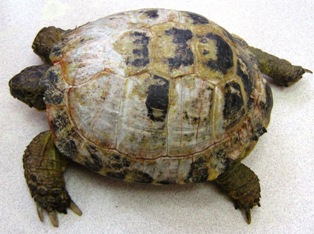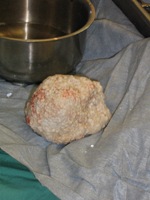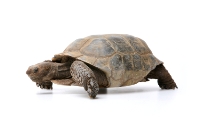Hibernation Recommendations for Tortoises and Turtles
Hibernation, or sometimes called brumation, is an important part of the natural cycle of desert tortoises, box turtles, and many other turtles and tortoises kept as pets. Make sure you know if your turtle or tortoise is supposed to hibernate or not.




 A sad fact is that dogs and tortoises are not a predictable mix. The family dog that has never hurt a fly often becomes overwhelmed with an irresistible urge to chew on the tortoise. Even dogs that have lived peaceably with tortoises for years have these lapses in decorum. Make sure that any interactions between your dog and your tortoise are closely supervised and make sure the tortoise is too large to be swallowed! Be
A sad fact is that dogs and tortoises are not a predictable mix. The family dog that has never hurt a fly often becomes overwhelmed with an irresistible urge to chew on the tortoise. Even dogs that have lived peaceably with tortoises for years have these lapses in decorum. Make sure that any interactions between your dog and your tortoise are closely supervised and make sure the tortoise is too large to be swallowed! Be Insights into Medical Management
Insights into Medical Management